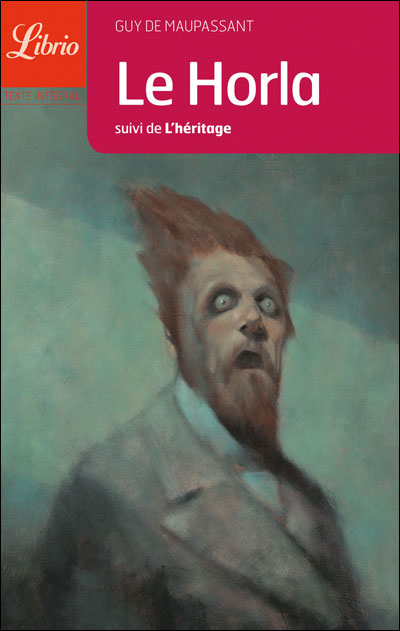Adventures on the Bookshelf is heading off on its summer holidays. Over the next few weeks, we’ll be picking out some recommended reading from our archives to keep you busy on the beach. We’ll be back with new posts from the first Wednesday in September.

‘Il nous faut autour de nous des hommes qui pensent et qui parlent. Quand nous sommes seuls longtemps, nous peuplons le vide de fantômes.’
‘We need thinking, talking men around us. When we are alone for a long time, we fill the emptiness with ghosts.’
French literature may not be as well-known for its ghost stories as English and German, but it has produced some real spine-chillers, particularly among nineteenth-century short stories by writers like Théophile Gautier, Prosper Mérimée, and Guy de Maupassant. ‘Le Horla’ (1887) is a story by Maupassant, whom you might have heard of for his Prussian War satire, ‘Boule de suif’, or the novel Bel ami, filmed a couple of years ago with Robert Pattinson in the title role.
‘Le Horla’ takes the form of a diary written by a man who lives alone, but who comes to believe that he is not alone. Gradually, he begins to sense an invisible, malign presence shadowing him. He names it the horla, a made-up word that suggests hors-là, a creature from the beyond. Evidence for the entity’s existence is slight: a full glass of milk at the narrator’s bedside at night is empty when he wakes, without his remembering having drunk it, and other small, uncanny incidents. But in his mind, the narrator has all the evidence he needs: he is overwhelmed by the insistent feeling of a demonic being in the room with him. Unless, that is, in his mind is the only place the creature exists…
‘Le Horla’ is a superior chiller from one of the great masters of French literature, and an excellent choice of reading material for a dark autumn night when you’re alone in the house. In French, you can get it in a stand-alone volume or as part of a collection, as well as in English translation or in a helpful French/English parallel text version. There’s also a lesser-known earlier version from 1886 which doesn’t use the diary form; the 1887 story is the one you want. I take no responsibility for any subsequent sleepless nights, and just remember, you can’t see the horla, so leaving the lights on won’t help at all…

